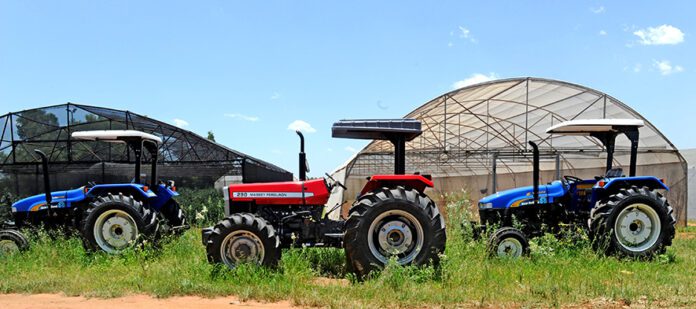The recent report released by AgriSA has revealed that South Africa’s agriculture sector, a key contributor to the nation’s economy and job market, is grappling with a severe energy crisis.
The sector, which played a crucial role in the economy by providing approximately 874 000 jobs and accounting for nearly 80% of the country’s food production, faced significant challenges due to the exorbitant expenditure of R137-billion on electricity each year.
The sector, stated the report, was severely hampered by inadequate and unreliable power supply, along with deteriorating grid infrastructure that is also plagued by cable theft and a lack of maintenance.
As a result, it stated, the industry has incurred substantial losses of over R23-billion between January and September 2022.
Recognising the profound impact of the crisis, industry experts stressed the importance of reliable electricity as the core of modern farming, stated the report.
Roger Hislop, energy management systems executive at CBI: energy, said: “Where farmers suffer, the nation suffers. Energy security is critical for the sector in the long term, and rising energy costs are a hammer blow to farm viability in the short term.”
Hislop emphasised that a new approach to energy was necessary, as the sector couldn’t continue to bear the burden of increasing costs every month.
To address the issue, Hislop suggested leveraging technology to reduce energy consumption and costs in the agricultural industry.
He said it was important to have an oversight of electricity consumption to gain control over energy usage.
He stated that by implementing the demand side management strategies, large agri-businesses can better manage their resources, including electricity, labour, and capital.
Hislop explained that trials of managed smart metering and automated load management technologies were already underway, enabling businesses to shift loads from peak tariff to off-peak times and prioritise the use of electrical loads.
Furthermore, amidst soaring electricity prices and frequent power outages, farm managers were turning to alternative energy sources such as backup generators and solar power.
Hislop said many farmers had opted to power their farms using solar photovoltaic systems and were exploring opportunities for procuring “green energy” from utility solar operators through power purchase agreements.
Mike Barker, an energy engineer at EnergyFlexibility, highlights that the era of abundant and low-cost energy from Eskom is permanently gone.
He said in the current landscape, the focus was on obtaining detailed consumption and generation data.
Baker noted that electricity had become highly expensive, necessitating farmers to monitor their energy usage at multiple points in their operations, ideally in real time with hourly or even per-minute intervals enabling them to correlate real-life events with consumption information.
He emphasised the importance of addressing excessive usage and potential wastage on a daily and even hourly basis, rather than waiting until the end of the month when the Eskom bill arrives.
He suggests that modern energy management systems empowered farmers to establish automated rules that actively manage their electrical usage in real time, promptly notifying them of any exceptions that occurred.
By adopting such systems, farmers can proactively optimise their energy consumption and identify areas for improvement as they arise.
“The days of good old mother Eskom with vast amounts of low-cost energy are over for good. “Granular consumption and generation data is exactly what it’s all about now.
“Electricity is very expensive, so farmers need to monitor its use at many points in their business, and in real time (at least hourly, preferably per minute to allow ‘real life’ events to be correlated with consumption information.”
“Modern energy management systems allow farmers to define sets of rules that automatically manage their electrical usage in real time, and flags exceptions as they occur.
“Now is the time for farmers to invest in technology to continue growing this crucial sector, to continue growing their operations, to continue growing jobs and to continue growing food for the country,” Hislop said.



